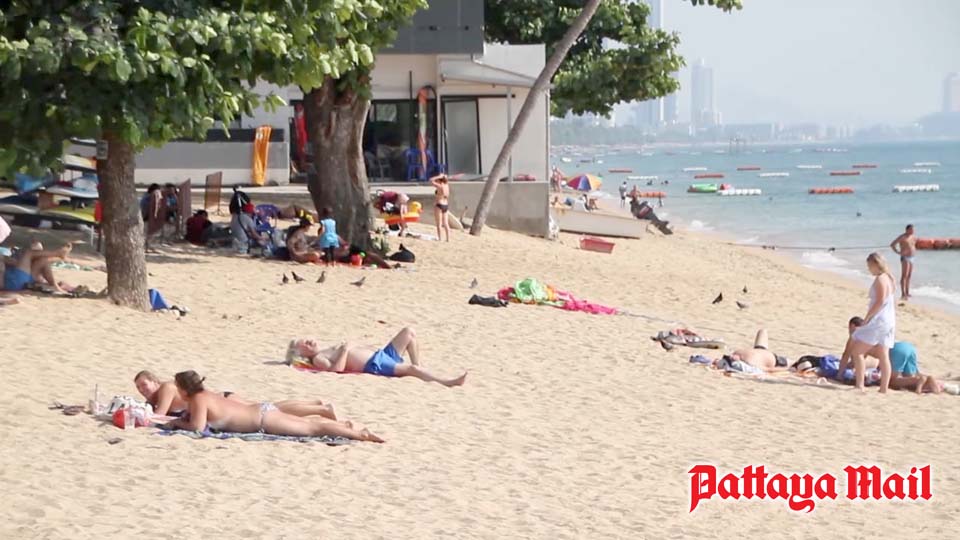
After 18 months of overly cautious coronavirus restrictions, a hint of common sense emerged from a senior Thai tourism official, suggesting that the government may ditch contradictory and restrictive city reopening plans and implement a single standardized system for the return of foreign tourists.
Tourism Authority of Thailand Gov. Yuthasak Supasorn told reporters Tuesday that government officials are reconsidering having individual cities create their own models for reopening to fully vaccinated foreign tourists and instead go with a “One SOP, One System” policy.
Yet another acronym for politicians and bureaucrats to bandy about, OSOS would replace city-based plans for mandatory quarantines and unpopular “sealed routes” and halve the cost for Covid-19 tests.
Yuthasak said the reopening plans for Pattaya, Chiang Mai, Hua Hin, Cha-am and Bangkok will be submitted to the Center for Covid-19 Situation Administration next week, seeking to receive inoculated tourists from Oct. 1.
Meanwhile, the “Samui Plus” program will morph into a quarantine-free “sandbox.
Ratchaporn Poolsawadee, president of the Tourism Association of Koh Samui, on Sept. 8 criticized how the Surat Thani Province reopened, saying mandatory quarantine and high Covid-19 test prices resulted in far fewer tourists arriving.
As of Sept 7, Samui saw only 628 travelers taking advantage of Samui Plus, while Koh Phangan and Koh Tao getting laughably low arrivals of 43 and 26, respectively.
Ratchaporn said public officials in Pattaya, Hua Hin and Chiang Mai planning to impose quarantine and “sealed routes” in their reopening plans should do something unusual and actually learn from another area’s mistakes.
Quarantine and movement restrictions don’t work he said, wondering aloud why those municipalities were still proposing failed approaches.
While preparing their standard operating procedures, they should learn from Samui Plus that any restrictions, such as mandatory quarantine, can create a tremendous negative impact on the market.
The TAT chief said, under OSOS, every province will apply the same standard operating procedure (SOP), which will enable tourists to travel freely within designated areas in each province.
Tourists would still be required to follow previously established rules, such as activating the Mor Chana tracking app and checking in daily at a government-certified SHA+ hotel.
But gone would be requirements, such as those planned by Chonburi, forcing tourists to remain in their hotels for the first three days and then, over the next 11 days, only travel to prepaid, predetermined tourist attractions approved by the government on a “sealed route” segregated from Thais, who currently are testing positive at more than ten times rate of arriving, fully vaccinated foreigners.
Yuthasak said the TAT also discussed with health authorities a reduction in the ridiculous price of three required but almost entirely unnecessary and invasive RT-PCR coronavirus tests. Government-approved labs currently charge up to 16,000 baht for the tests. That has been a major obstacle in attracting tourists to the Phuket “sandbox” and Koh Samui.
Instead, the agency wants to see the price cut by at least half to 8,000 baht, with less-invasive and cheaper antigen tests administered for the second and third tests.
It should be noted that TAT can’t run a bath on its own, let alone a reopening plan. The agency has no power to open or close anything and its wishes are more often ignored by government health officials than adopted.
Yuthasak’s statement also came only two days after officials said Pattaya’s “Move On” plan would be decided on by the CCSA on Friday.
Also speaking to reporters Sept. 14, Tourism and Sports Minister Pipat Rathchakitprakarn made no mention of the OSOS proposal or hint that city-drafted reopening plans would be ditched.
In fact, he reaffirmed that Bangkok, Chonburi, Phetchaburi, Prachuap Khiri Khan and Chiang Mai would begin implementing their tourism reopening plans on Oct 1 as planned.
He said another 21 provinces would follow suit on Oct 15, which for some dispelled doubts over whether the government would be able to proceed with its plan in the face of the ongoing pandemic.
Pipat acknowledged that the continued high number of new Covid-19 cases remains a major hindrance to reopening but said the ministry is fully prepared.
Public Health Minister Anutin Charnvirakul separately said his ministry also is fully prepared for an Oct 1 reopening.
What that “reopening” looks like, however, no one knows or will know until at least next week.
The original version of this story appears in the Bangkok Herald, a Pattaya Mail partner.
 |
 |
 |





